
NO&T Dispute Resolution Update
Cross-border commercial disputes are sometimes resolved using mediation (International Commercial Mediation), which is one of the most popular forms of ADR to resolve legal conflicts. However, International Commercial Mediation is relatively unknown in Japan. Why is that?
In Japan, Civil Mediation (Minji-chotei) is a court-led mediation process which is frequently used in a business-to-business context. Civil Mediation recently marked its 100th anniversary in October 2022 and the latest Annual Judicial Statistics from 2022 (“2022 Judicial Statistics”) give some insight into its popularity. Civil Mediation was used in 33,934 cases in 2022 (and 3,819 of these – or roughly 11 percent – were commercial cases). Of that total, 8,145 Civil Mediation cases were filed with district courts and 25,789 Civil Mediation cases were filed with summary courts.※1 Of the 8,145 cases filed with district courts, 841 cases (10 percent) were categorized as commercial cases; of the 25,789 cases filed with the summary courts, 2,978 cases (12 percent) were categorized as commercial cases.※2 According to the Japan Commercial Arbitration Association (JCAA),※3 which is a leading mediation services provider in Japan, between 2003 to 2021 only 81 mediation cases were referred to the JCAA. At least according to the publicly available data, it appears that Civil Mediation is how commercial parties in Japan prefer to mediate.
Before a non-Japanese company – including those with subsidiaries in Japan – decides to engage in Civil Mediation it should be aware of the significant differences between Civil Mediation and International Commercial Mediation.
Civil Mediation is a mediation service provided by courts under the Civil Mediation Act (“Act”).※4 It is designed to assist parties to resolve disputes without having to litigate. There are eight types of Civil Mediation in Japan including general civil mediation,※5 real estate mediation and commercial mediation.※6
The court carries out Civil Mediation through a ‘mediation committee’ whose goal is to assist the parties to resolve their differences through mutual concessions that are reasonable and take into account the underlying facts of the dispute (Article 1 of the Act). The mediation committee is comprised of a chief mediator who is a judge or civil mediator (minji-choteikan)※7 and at least two civil mediation commissioners (Articles 6 and 7 of the Act).※8 Civil mediation commissioners are designated by the court for each case. The commissioners are appointed by the Supreme Court from amongst lawyers, experts (e.g., medical doctors, architects, real-estate appraisers, information technology professionals) or those with extensive knowledge and experience in a particular area.
Active judicial proceedings are not a prerequisite for Civil Mediation. Typically, a claim will not have been filed when parties agree to enter into Civil Mediation.※9 Even where proceedings are on foot, the presiding judge may※10 refer the case to Civil Mediation if the judge considers that mediation is an appropriate way to resolve the dispute.
In International Commercial Mediation mediator selection is often by direct referral where candidates can be nominated by either party. This selection process will sometime include an interview with the candidate. A candidate acceptable to both parties will then be appointed.
In Civil Mediation, cases are assigned to a judge (serving as chief mediator) on a rota basis. Courts will typically assign individuals as civil mediation commissioners (the commissioners, together with the chief mediator, constitute the mediation committee), who have relevant expertise in the area of the parties’ dispute; the parties themselves have no right to choose the members of the mediation committee.
International Commercial Mediations typically last only one or two days. Whereas in Civil Mediation, mediation sessions are held intermittently over a longer period – for instance, once a month over the course of a year or more. According to the 2022 Judicial Statistics, 25 percent of commercial cases mediated at the district courts last more than one year. There were at least three mediation days in roughly 13 percent of cases mediated at district courts where a settlement was ultimately reached.
In International Commercial Mediation, the parties will typically exchange a short position paper before the mediation date. The position paper is prepared for the purpose of briefing the mediator on the case background and the issues in dispute as well as convincing decision makers on the other side why they should settle. Thus, the focus of a position paper is not limited to legal arguments. The parties will also prepare a bundle of documents which is often limited to a handful of key documents.
Mediators coming from common law backgrounds in International Commercial Mediation may often be hesitant to make a recommendation or to express an opinion on the merits or a particular issue lest they be seen as biased.
In Civil Mediation, commercial parties tend to prepare detailed and lengthy written submissions which resemble the pleadings in litigation. The similarity to pleadings may be because the mediation committee led by a judge sometimes approaches the mediation from a legal perspective and presents to the parties a mediation proposal (i.e., settlement plan) only after considering and discussing the legal issues. Unlike in International Commercial Mediation, in Civil Mediation, even if the mediation is unsuccessful, the court may, by its own authority and to the extent that it does not contradict the objectives of the parties’ petitions, make an order (such as payment of money) to resolve the case after hearing the opinions of the civil mediation commissioners comprising the mediation committee (Article 17 of the Act).※11 The order is subject to acceptance by both parties; if one party objects then the order will not be effective. On its face this may seem fatal to any order but social norms in Japan mean that even where one party has certain misgivings about a proposed order they may ultimately accept it because it has been made by an authority that they deem to be impartial.
One of the key features of International Commercial Mediation is that it is conducted on a “without prejudice” basis. This means that any documents created for the purpose of mediation or anything said during the mediation itself cannot be relied upon in subsequent litigation or arbitration.
Civil Mediation, however, does not recognize “without prejudice” privilege. For example, a judge presiding over a construction litigation case at the 22nd Civil Division of the Tokyo District Court may refer the case to Civil Mediation to be conducted at the Division. The case will then be transferred to mediation and the mediation committee may include the very same judge who referred the case to mediation. In the mediation, an expert mediation commissioner prepares a written view on the merits of certain issues and also prepares a settlement proposal. If settlement cannot be reached in the mediation, the expert mediation commissioner’s report may be subsequently introduced as evidence by one of the parties in the litigation.
Confidentiality provisions are agreed in International Commercial Mediation when the mediation agreement is signed: the parties and the mediator must keep confidential any communications and discussions related to the mediation as well as the mediation’s outcome.
In Civil Mediation, however, while the mediation process is not open to the public and the members of the mediation committee are subject to a confidentiality obligation imposed by law, the parties to the Civil Mediation, unless they otherwise agree, do not owe confidentiality obligations to each other until a settlement (which will typically include a confidentiality obligation) is reached.
“Shuttle diplomacy”, where the mediator goes back and forth between the parties who are located in separate rooms, is common in International Commercial Mediation. Plenary sessions are usually held at the start, and then only where appropriate thereafter. In Civil Mediation, each party is separately invited to a room where the mediation committee sits. Both parties may be invited to appear before the committee simultaneously whenever the committee sees fit. While the precise timing and structure of plenary sessions is different between International Commercial Mediation and Civil Mediation, these do not appear to be significant differences – the parties are generally only brought together occasionally.
In International Commercial Mediation, the mediation agreement will typically set out that until and unless a settlement agreement is made in writing and signed by the parties, no terms of the agreement will be binding on the parties.
In Civil Mediation, when an agreement is reached between the parties during mediation and this is entered in a court record, the mediation is deemed successful, and the entry has the same effect as a judicial settlement (Article 16 of the Act). This means the settlement agreement in the form of the entry in the court record of mediation can be enforced pursuant to the Civil Enforcement Act, just like a court judgement. In some types of case, a settlement agreement made in Civil Mediation will have binding effect even before the entry in the record. For example, in a Civil Mediation dealing with land rent, while the parties agreed to the sum to be paid as rent, they could not reach an agreement on how the installments were to be paid, and the Civil Mediation was terminated as a result. In later litigation, the court held that while the Civil Mediation was terminated without an entry having been made in the court record, the parties’ agreement on the amount of rent was found valid and effective (judgment of Osaka District Court rendered on June 7, 1967).
If the nationalities of the parties to an International Commercial Mediation are different, the language used in the mediation will typically be English.
Civil Mediation is always conducted in Japanese, even if one of the parties is a foreign company. A translator can be present at the Civil Mediation.
While Civil Mediation is frequently used in business-to-business contexts in Japan, international companies and their subsidiaries should be aware of the significant differences between International Commercial Mediation and Civil Mediation. International companies should also be aware that Japanese companies’ and lawyers’ experience of Civil Mediation in Japan will likely shape their expectations of a mediator’s role in International Commercial Mediation.
*1
Summary courts have subject matter jurisdiction over Civil Mediation cases. Except for limited cases, district courts have jurisdiction only when the parties so agree (Article 3 (1) of the Act).
*2
According to the Tenth Mediation Audit published by CEDR (The Centre for Effective Dispute Resolution) on 1 February 2023, the civil and commercial mediation market in England & Wales for the year ended 30 September 2022 is estimated in the order of 17,000 cases.
*5
General civil mediation captures all disputes which do not fall under any of the other categories of Civil Mediation.
*6
In addition to the types of Civil Mediation stated above, there are: agricultural mediation, mining pollution mediation, traffic accident mediation, pollution mediation and special conciliation (which is conducted under the Act on Special Conciliation for Expediting Arrangement of Specified Debts).
*7
A civil mediator (minji-choteikan) will lead the Civil Mediation with the same authority as a judge. Civil mediators must be qualified lawyers who have at least five years post-qualification experience. They are appointed by the Supreme Court.
*8
Although the Act permits more than two additional mediators there are typically only two in practice.
*9
If the parties fail to reach a mediated settlement and then the party who initiated the mediation brings a claim in relation to the same issues within two weeks, that claim is deemed to have been filed at the time the petition for mediation was filed. This has limitation period implications.
*10
In claims for rent adjustment under land or building leases, the party who intends to bring a claim must first apply for civil mediation. If the party in question fails to do this, then a court “must” refer the case to Civil Mediation.
*11
The phrase “does not contradict the objectives of the parties’ petitions” is not defined in the Act. However, commentaries suggest this means “within the scope of the resolutions proposed by either party in the dispute”. For example, in a dispute to determine an amount to be paid, the mediation committee cannot issue an order to pay JPY 2.5 million if the amount in dispute is between JPY 1 million and 2 million. Another example is if party A is seeking the return of goods and party B objects by arguing that the title to the goods belongs to him, the mediation committee cannot order that the goods be sold to a third party and the consideration distributed amongst parties A and B instead.
This newsletter is given as general information for reference purposes only and therefore does not constitute our firm’s legal advice. Any opinion stated in this newsletter is a personal view of the author(s) and not our firm’s official view. For any specific matter or legal issue, please do not rely on this newsletter but make sure to consult a legal adviser. We would be delighted to answer your questions, if any.
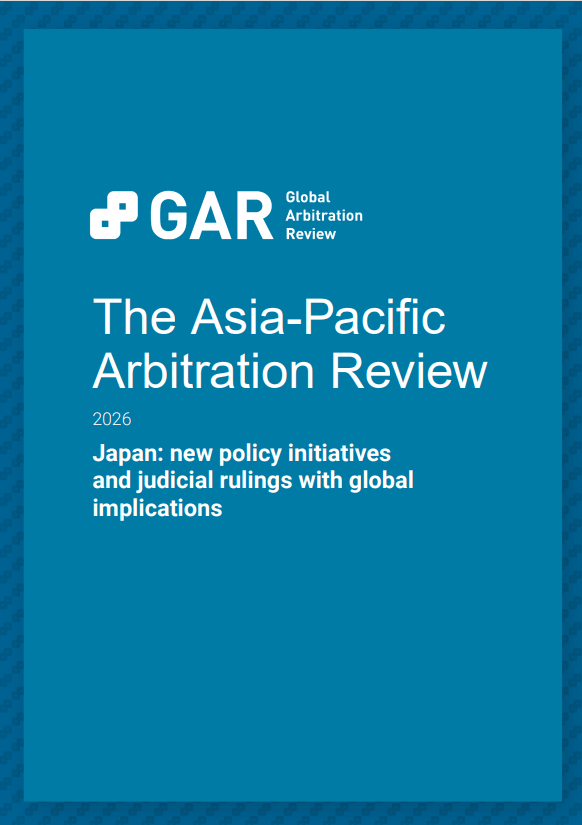

(May 2025)
Yoshimi Ohara, Shota Toda, Annia Hsu (Co-author)


Patricia O. Ko


Hiroki Tajima
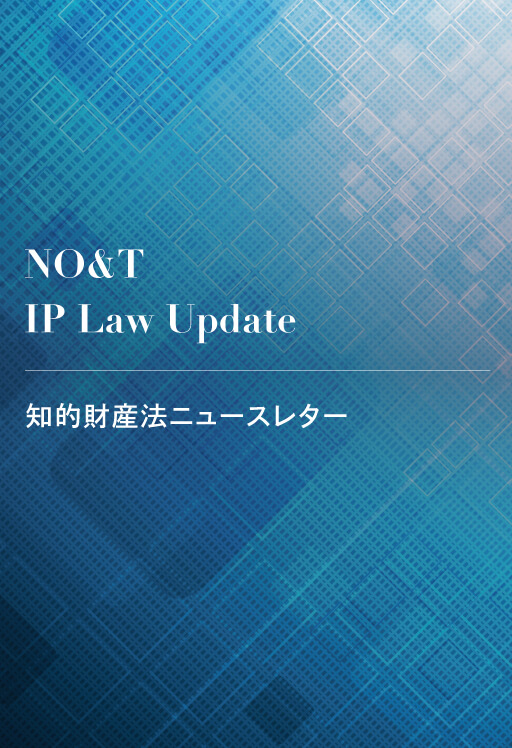

Kenji Tosaki, Takahito Hirayama (Co-author)


Hiroki Tajima


(February 2025)
Koki Yanagisawa, Hiroyuki Ebisawa (Co-author)


Kara Quek, Kennosuke Muro (Co-author)


Annia Hsu, Kennosuke Muro (Co-author)
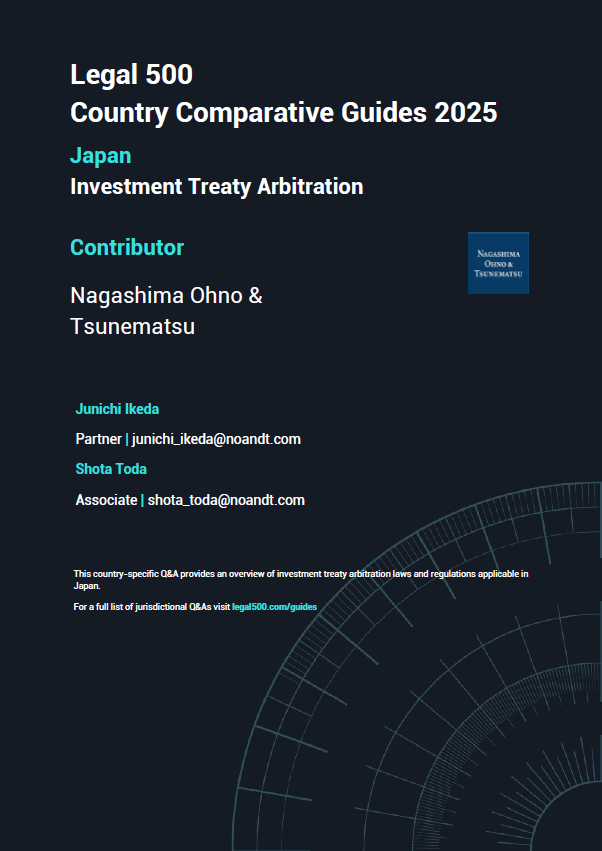

(March 2025)
Junichi Ikeda, Shota Toda (Co-author)
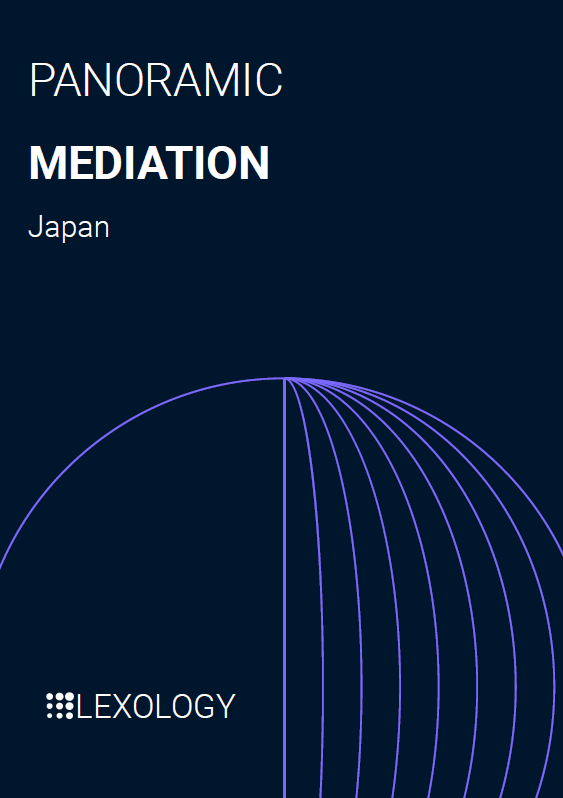

(October 2024)
Junichi Ikeda, Tomohiko Nabeshima, Akiko Inoue (Co-author)


(April 2024)
Shota Toda


Kaori Sugimoto


(May 2025)
Yoshimi Ohara, Shota Toda, Annia Hsu (Co-author)
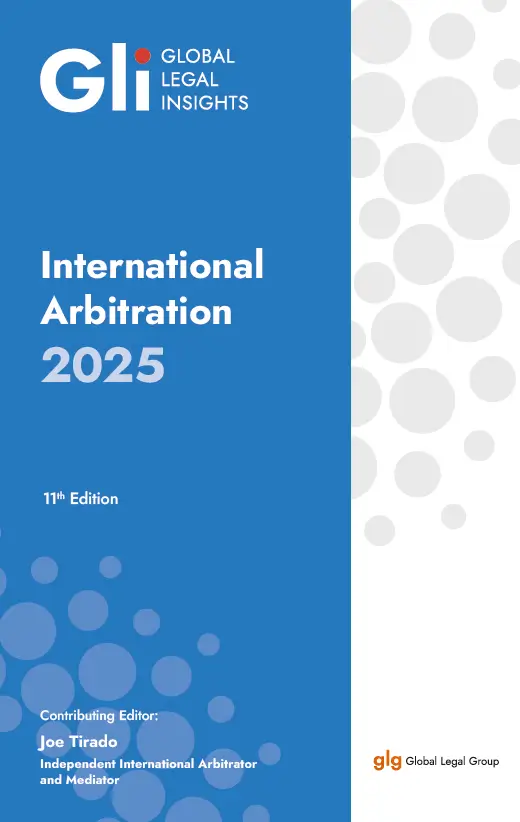

(April 2025)
Kaori Sugimoto, Shota Toda, Kennosuke Muro (Co-author)


Kara Quek, Kennosuke Muro (Co-author)


(March 2025)
Junichi Ikeda, Shota Toda (Co-author)


(February 2025)
Koki Yanagisawa, Hiroyuki Ebisawa (Co-author)


Kara Quek, Kennosuke Muro (Co-author)


Annia Hsu, Kennosuke Muro (Co-author)


Claire Chong, Kennosuke Muro (Co-author)